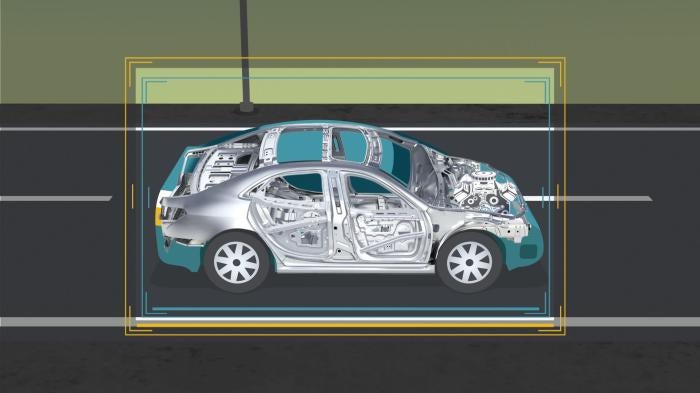How Aluminum Production Is Impacting Human Rights
Read a text description of this video
Hello world. I’m your new electric car.
I’m built from lightweight materials like aluminum, which help me reduce my emissions.
But the news isn't all good. The production of aluminum in me and other cars can harm people and the environment.
Let’s back up and I’ll show you.
Aluminum is made from an ore called bauxite.
Because bauxite is found near the surface, bauxite mines take up a large area and often destroy land local communities rely on.
In Australia, bauxite mining has often occupied land belonging to Indigenous Peoples, many of whom have been fighting for decades for restitution.
In Guinea, a bauxite boom means mining is expanding rapidly over land that farmers have depended on for generations.
Bauxite mining and refining can also pollute local communities’ water sources.
In Ghana, NGOs say bauxite mining in a protected rainforest could pollute rivers that provide drinking water to millions of people.
The conversion of bauxite into aluminum, the bulk of which is done in China, also requires large amounts of electricity.
Because most aluminum producers rely on coal power, aluminum production is responsible for more than 1 billion tons of CO2 equivalent each year, around 2% of global greenhouse gas emissions.
Local communities, environmental defenders, and human rights activists are speaking up to shine light on the problems caused by aluminum production.
Some car companies are listening and looking for ways to source aluminum responsibly.
They should require mines, refineries and smelters to protect communities from the negative impacts of mining and reduce the aluminum industry’s environmental footprint.
On the drive towards a greener world, everyone’s rights should be respected.
(Washington, DC, July 22, 2021) – Automobile companies need to do more to address abuses in their aluminum supply chains and the bauxite mines they source from, Human Rights Watch and Inclusive Development International said in a report released today. Car manufacturers used nearly a fifth of all aluminum consumed worldwide in 2019 and they are forecast to double their aluminum consumption by 2050 as they transition to electric vehicles.
The 63-page report, “Aluminum: The Car Industry’s Blind Spot – Why Car Companies Should Address the Human Rights Impact of Aluminum Production,” describes the global supply chains that connect car manufacturers to mines, refineries, and smelters from countries including Guinea, Ghana, Brazil, China, Malaysia, and Australia. Based on meetings and correspondence with nine major car companies – BMW, Daimler, Ford, General Motors, Groupe PSA (now part of Stellantis), Renault, Toyota, Volkswagen, and Volvo – Human Rights Watch and Inclusive Development International assessed how the auto industry addresses the human rights impacts of aluminum production, from the destruction of farmland and damage to water sources caused by mines and refineries to the significant carbon emissions from aluminum smelting. Three other companies – BYD, Hyundai, and Tesla – did not respond to requests for information.


